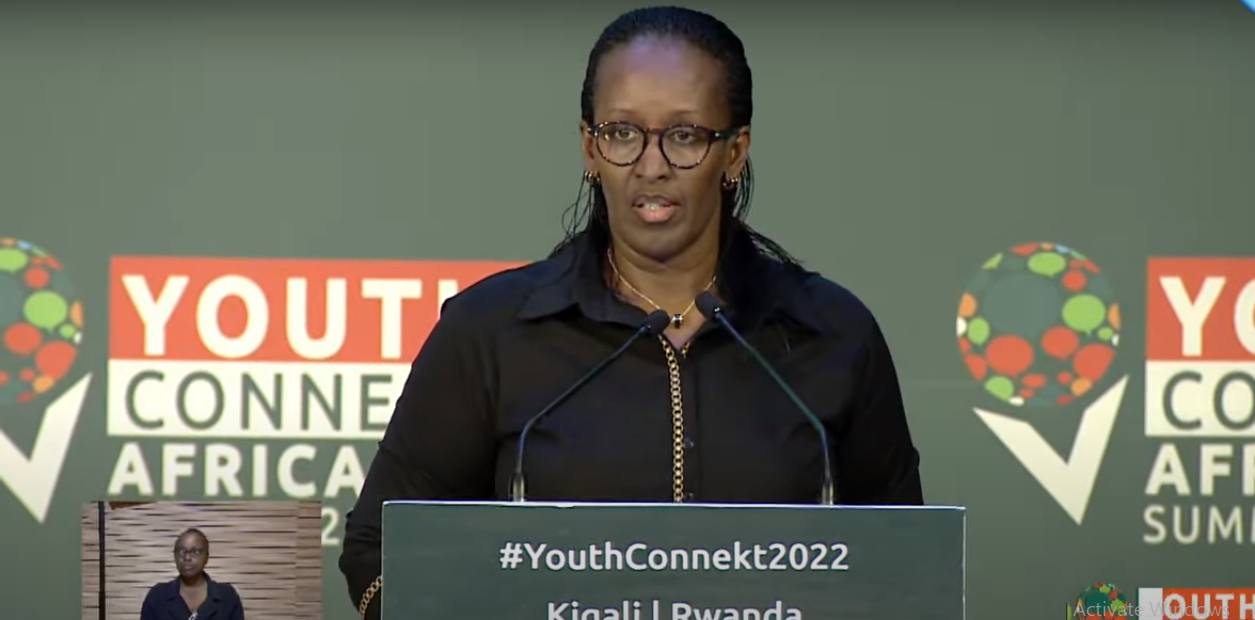The First Lady, Jeanette Kagame has appealed to the youth to invest more energy in the campaign against mental problems and sexual reproductive health that are contemporarily threatening the youth worldwide.
The First Lady made the call during the ongoin Youth Connekt Africa 2022 summit under theme: “Investng in young people’s health: Access to Sexual and Reproductive health and Mental Health”.
She reminded the youth to hold their lives dear as they battle against mental challenges of different types.
“You will find that there is a little replacement to truly nourish happiness in form of investment. We are living in a decisive environment,” she said.
‘Dear youth, despite your energy, vitality, your energy, your optimism, we acknowledge the problems you face are plenty, some of which are almost unknown to us,” she told the youth.
She further reminded the gathering that the risks involved with the standards of life set society are negatively likely to lead them into stigma and isolation if not dealt with care.
“The world stage has become tactile screens through which the youth are always targeted and with a realistic intimidating standard of life and beauty and encouragement to engage in self isolation and at times individualism.”
“We must not let this organic joy that we once held dear,” she added; “The anxiety that they can induce shouldn’t enrich pleasures that are still within our reach. There is little replacement to truly nourish happiness in the form of investment in one’s mind, spirit, body and environment.”
The First Lady believes sexual reproductive health rights and mental health are impossible to separate from each other.
Survivors of sexual violence are three times likely to experience major depressive episode as those who have not got into such experience.
Globally, it is estimated that 1 in 7 (14%) 10-19 year-olds experience mental health conditions(1), yet these remain largely unrecognized and untreated.
Across 37 studies published between 2008 to 2020 and spanning 97,616 adolescents, the researchers found the following prevalence: depression (26.9%); anxiety disorders (29.8%); emotional and behavioural problems (40.8%); PTSD in one study (21.5%) and suicidal thoughts (20.8%).
The authors suggest that interventions should be delivered in schools, clinics and community settings to improve adequate child and adolescent mental healthcare.
Mental health should be an integral part of programmes related to community empowerment, poverty reduction, HIV/AIDS prevention, and reproductive and sexual health.




















